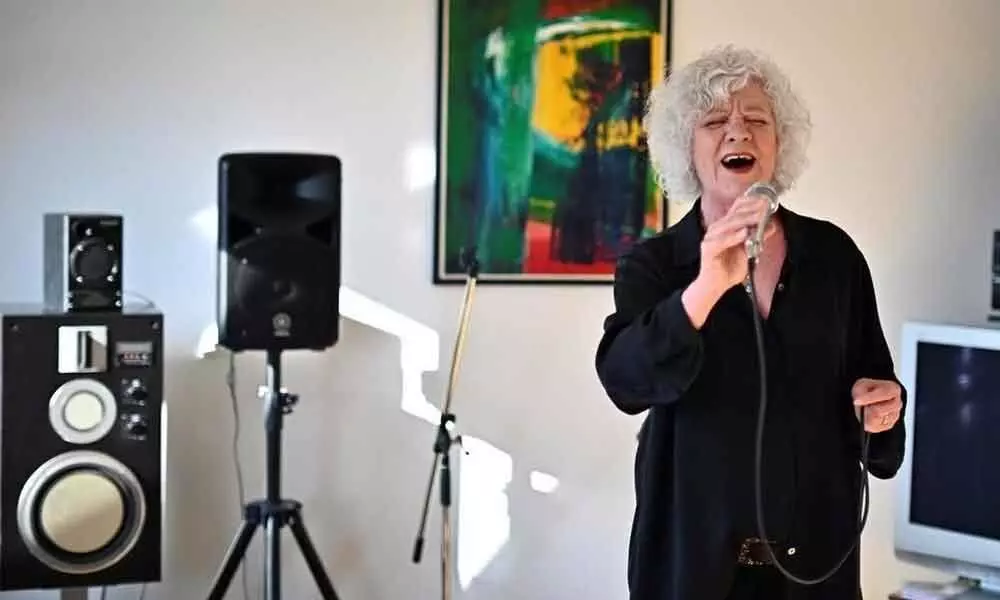Berlin artists colony finds creative answer to shutdown
 An ‘artists' colony’ in Berlin is recording songs, audiobooks and readings to listen to online during the coronavirus pandemic
An ‘artists' colony’ in Berlin is recording songs, audiobooks and readings to listen to online during the coronavirus pandemicBerlin: In her sun-soaked Berlin living room, Ingrid Ihnen-Haas belted out Edith Piaf songs into a microphone -- part of a collective effort to help entertain a country confined to their homes by the coronavirus pandemic.
"Especially for elderly people who have to stay at home, the concept of 'concerts in your living room' is brilliant," said Ihnen-Haas, 71.
With concert halls, restaurants and most shops shut, public life in Germany has ground to a halt as the population is urged to stay home to help contain the spread of the virus.
Ihnen-Haas and fellow residents of an "artists' colony" in southwest Berlin have joined voices to record albums, audiobooks or readings to share online. The former social worker who sings regularly in small venues across the capital has now turned her living room into a recording studio.
Outside in a common area, comedian Cornelia Schoenwald is sitting on a bench, reading aloud from a short story by Erich Kaestner, a classic of German children's literature. Her reading, accompanied by the chirping of sparrows, is being filmed by Christian Sekula, one of the leaders of the association that manages cultural life in the colony. He will later edit the recording and put it up on the website of the association, which usually stages plays and other cultural activities.
"Right now I don't have any bookings," said Schoenwald, whose calendar quickly emptied as Berlin's cultural life came to a standstill over the past few weeks. But far from lamenting her fate, she's convinced there are benefits to this time when everyone is being forced to take their foot off the pedal. It's "enriching because it allows us to focus on what's really important," she said.
"Perhaps, as artists, we have a different relationship with the highs and lows of existence. We are more used to them," she added, referring to the precarious nature of work as an artist.
The artists' colony in Wilmersdorf was founded in 1927 when two artists' associations bought three buildings and turned them into affordable accommodation for the city's musicians, actors and writers. Back then, the arts were thriving in Berlin, with theatres and nightclubs buzzing with scenes like those from the musical "Cabaret."
The cluster of 80 homes comprises inner courtyards where bright yellow daffodils add a splash of colour to the 1920s architecture. Nobel Prize winning German author Guenther Grass lived not far from here, as did philosopher Hannah Arendt, before she was expelled by the Nazis.
The homes are still reserved for artists and intellectuals, active or retired, with a modest income. For jobbing actors and musicians or for painters who have seen their exhibitions postponed or cancelled, the COVID-19 crisis is an existential one.
"Those who work only two or three days a week have no financial reserves. A social crisis is brewing," Sekula said. Despite their own worries, the residents of the complex will continue to support each other and provide the small services that make up the fabric of community life.
"The last guy who moved in went out to get me some drinks," said Gerda Schulz, an 82-year-old retired flamenco dancer who is currently only going out once a day for an early-morning walk.
Meanwhile, Ihnen-Haas continues to belt out songs from her living room, blue glasses and dishevelled hair completing her look. There may be no live performances, no club nights and no can-can girls in Berlin today. But in Wilmersdorf, at least, life is still a cabaret.














